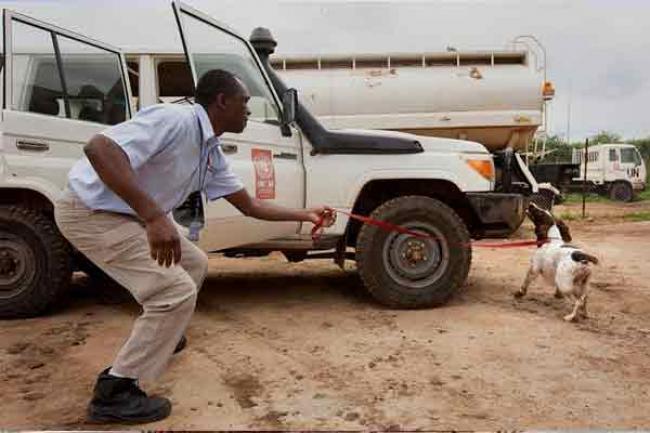Just Earth News 29 May 2016

UNMISS/JC McIlwaine
In a press release, UNMAS said the explosive detection dogs regularly support UN Police (UNPOL) to conduct searches of protection of civilians sites, cargo and entry points, to detect prohibited or hazardous items, all of which are swiftly removed by UNPOL so that internally displaced people and others under the protection of the UN Mission in South Sudan (UNMISS) remain safe from harm.
Currently, UNMAS has six explosive detection dog teams that focus on entry point control and cargo searches in Juba. In 2015, 19,781 vehicles, 13,587 bags and 970 buildings were searched using these tea
Upon arrival, the dogs will be transferred to temporary kennels in Gumbo, Juba, where they will be acclimatized and paired with their future handlers. Once the dogs are settled they will be paired with expert handlers who will complete additional training tailored specifically to South Sudan, UNMAS said.
While some of the dogs will remain in Juba to work at the UN Thom Ping Base, UN House, the protection of civilians sites and the UN airport, many will be transferred to Bentiu, Bor and Malakal.
UNMAS emphasized that the dogs are working animals and have been specially trained to perform the roles they will undertake. They are safe and friendly animals and have been screened for illness and disease and received the necessary vaccinations.
“The welfare of the dogs is of prime importance to UNMAS, as is the safety of the communities within which they will be working,” UNMAS said.